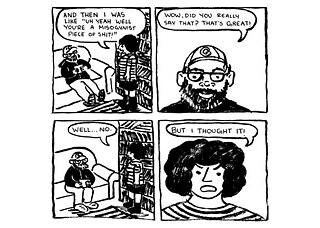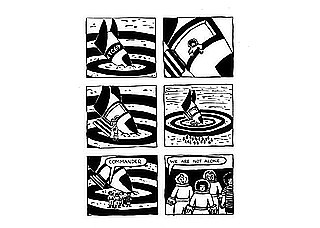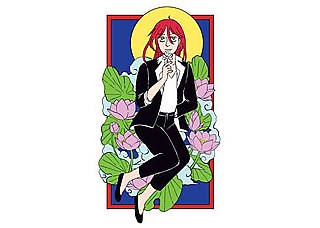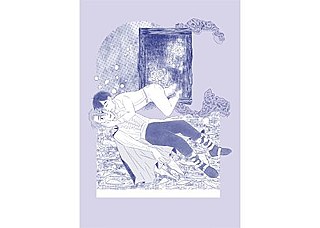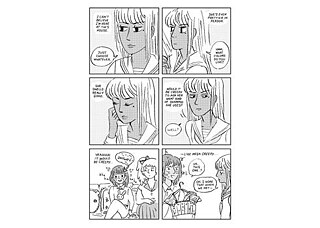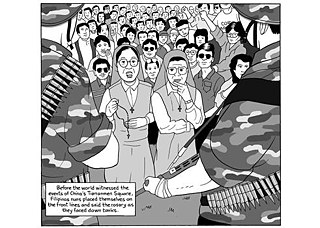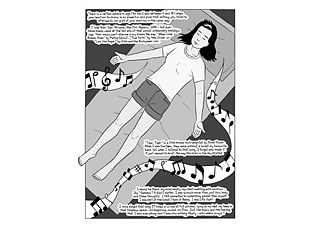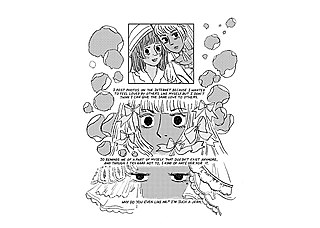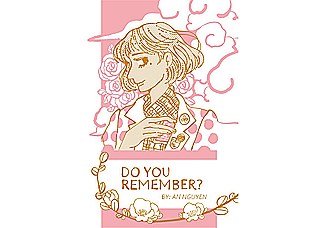Canadian Women's Stories in Comics
“I feel very angry about misogyny in our culture"
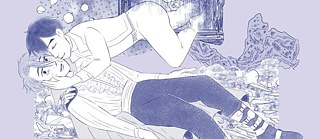
For too long, comics has been a male-dominated domain, over the past fifteen years, many women have worked hard to end that dominance. From mainstream comics to autobiography to feminist sci-fi and beyond - today the country’s comics scene is full of women creating female-centred stories in every genre. We spoke to three Canadian authors with new or recent books out.
Lorina Mapa, Jessica Campbell and An Nguyen are three Canadian comic-authors, who recently published their books. There’s a huge demand from readers to hear stories from women of all backgrounds, both factual and fictional.
Canadians are at the centre of this boom
For too long, comics has been a male-dominated domain, but as graphic novels, independent comics and diverse mainstream titles have exploded over the past fifteen years, many women have worked hard to end that dominance. Canadians are at the centre of this boom, with Montreal publisher Drawn & Quarterly publishing some of the biggest names in comics today, and artists like Kate Beaton and Jillian Tamaki attracting a wide international readership.After immigrating from the Philippines as a teenager, Lorina Mapa was one of five women among 200 students when she studied comic art at the Joe Kubert School in New Jersey in the late 1980s and early 1990s. She was offered a job at Archie Comics after graduation, but turned it down to move to Quebec with her Canadian husband, another Kubert School grad. While raising four children, she focused on freelance work, from inking to colouring to lettering comics for various publishers, working on titles like Elfquest. When the comic industry faced a downturn in the late 1990s, she turned to web design.
It wasn’t until recently that she began to focus on her own stories. Her book, Duran Duran, Imelda Marcos and Me came out with Nova Scotia’s Conundrum Press in 2017. The memoir tells of her experiences as a tomboy in the 1980s in the Philippines and the country’s 1986 revolution.
“I had interests in things which were stereotypically for boys,” she says from her home outside of Montreal. “I wasn’t able to express that side of myself, playing sports and loving comic books, Mapa says. “My intent really was to be a comic book artist from the beginning.” But between parenthood and the industry in crisis, those plans fell to the sidelines. When her father died suddenly, she began work on Duran Duran, Imelda Marcos and Me. “I went through a sort of early mid-life crisis, and I wrote my book and that was part of it, I felt I’d lost my identity in motherhood and just being someone’s wife, being someone’s mother,” she says.
Today, she’s working on a follow-up to the book that focuses on her years at comics school, doing lettering for manga comics, and feeling positive about Canada’s comics scene. “I have a great publisher, I couldn’t ask for a better publisher here in Canada,” she says. “I think the comic book industry is doing really well.”
“Why aren’t females funny?”
Victoria-born Jessica Campbell spent six years working at Montreal comics publisher Drawn & Quarterly, but it wasn’t until she’d left the publisher and started graduate school in Chicago, where she currently lives, that she started making her own comics. A graduate of Montreal’s Concordia University, Campbell’s first book, Hot or Not: 20th-Century Male Artists, came out with Koyama Press in 2016, and her second, XTC69, comes out this spring.Hot or Not used the lens of the infamous website to rank famous male artists of the past century as “hot” or “not.” Partly inspired by Campbell’s undergraduate studies in art history, she wanted to poke fun at the idea of male genius in art history. Her new book tells the story of a group of space travellers from an all-woman planet who are forced to seek out men to procreate with, but rethink their plans when they land on a bro-filled planet full of men who ask them questions like, “Why aren’t females funny?”
“I’m interested in science fiction but I always sort of felt intimidated by it because it felt like something I needed to know a lot more (about) if I wanted to make it,” Campbell says. “I feel very angry a lot of the time about misogyny in our culture, so this was a way for me to kind of express a lot of those attitudes in a funny way.”
Growing up, she recalls, “There was this kind of attitiude that the artistic contributions of the women who we hung around with were not as important as what the men were doing and that’s something that I definitely felt was mirrored when I got into comics.”
“comics that are celebrating women”
Her early working years in comics drove home the importance of feminist work and recognizing the contributions of marginalized groups. “It feels like the landscape has changed really significantly in the last decade for the positive,” as far as gender equality goes, Campbell says.An Nguyen lives in Ottawa and makes work under both her own name and the pen name Saicoink. Her book, So Pretty/Very Rotten, co-authored with New York artist Jane Mai, came out with Toronto’s Koyama Press last year. She’s been drawing comics her whole life, but counts the past decade as the real start of her career, when she began her minicomic series, “Open Spaces and Closed Places.”
So Pretty/Very Rotten looks at the Lolita fashion subculture, a Victorian-inspired hyper-feminine fashion style. The collection of comics and essays initially stemmed from Nguyen’s graduate studies on the topic. “It’s focusing on a fashion in which women and girls are the main movers or makers,” Nguyen says.
“I enjoy writing comics that are for women and also celebrating women,” Nguyen says. She’s worked with a number of collectives and anthologies across Canada and further afield over a 15-year period. Nguyen has a lot of respect and admiration for the women she’s met at comics events and online, and later worked with. “I think the act of [making] comics is in a way a feminist act or a political act, even if my comics aren’t overtly political.”
As a young artist, Nguyen’s main stylistic influences were from comics, animation and movies from Japan, Hong Kong and Korea. More so than facing any discrimination in comics due to her gender, Nguyen sees the barriers she’s faced as aesthetic ones, due to festival organizers who didn’t take work influenced by Asian media as seriously. She credits comics festivals like Toronto’s TCAF for paving the way to accept a wider range of styles, as well as an increase in women making comics. “Nowadays, that kind of style influence and story influence is a lot more visible,” she says.
As Canada’s comic scene continues to grow, diversity within comics keeps growing. While men may have dominated publishers’ lists in the past, it’s clear that there’s a huge demand from readers to hear stories from women of all backgrounds, both factual and fictional, and Canada’s authors are coming forward to share their stories.
